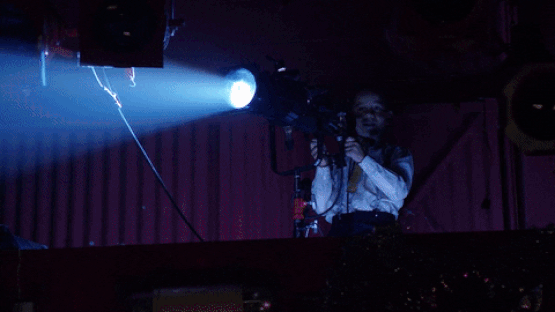I was afraid of everyone seated in the audience. I worried about what they would think if I made a mistake. I worried about what they’d say if I played badly. I worried that they would not like me. I worried that they’d think I was not good enough. And then I put myself in their place. My friends think I’m joking when I tell them that as a young performer, I was scared to death whenever I went on stage. I started learning to play the classical guitar when I was 10, and started performing in public – in competition and various community concerts – when I was 13. I was gripped with performance anxiety each time I went on stage.
During those years, it was pure panic whenever I had to face an audience. I would eventually settle down after the first few bars, but the moment I stepped onto the stage I would be gripped with so much terror that those opening notes were usually almost comical as my fingers trembled under the spotlight. But I assure you it was no laughing matter, at least, not to me. All that changed abruptly. And today, I tell my friends that I try my best not to frighten my audience when I go on stage. So what happened? How did I go from frightened kid to frightening showman? I’ll tell you in a minute. First, let me tell you what you might find on the Internet as suggestions for overcoming performance anxiety: 1. Practise well so you’re prepared. Yup. No running away from that. I’ll deal with the delicate matter of practising in another story, but know now that being prepared would make you less nervous about your upcoming performance. You’ll still be nervous, though. 2. Take deep breaths before walking on stage. This might help you. However, I tried it and it did nothing for me. 3. Avoid thoughts that might make you nervous. Yeah, right. Try to avoid thinking of anything when you’re in the middle of a panic attack. 4. Psych yourself into focusing on the enjoyment of the performance rather than the fear of something going wrong. Well, good luck with that. I promise you my thoughts and prayers while you’re at it. I’ll also like your social media post announcing that you’re attempting this. And you can thank me for reminding you that something could go wrong when that happens, so I can add, “I told you so.” The list goes on but I’ll stop here as none of the above did anything to alleviate my performance anxiety. I did this instead: I looked at what I feared in the eye. Yes, the audience. I was afraid of everyone seated in the audience. I worried about what they would think if I made a mistake. I worried about what they’d say if I played badly. I worried that they would not like me. I worried that they’d think I was not good enough. And then I put myself in their place. How did I react to a performer when I was seated in the audience? I would always be looking forward to a good performance, I was always sympathetic when the performer made a mistake, and if I was part of the audience watching a performance, I already liked them enough to want to be there so it was almost certain that they were good enough to get my attention. So my worst fears as a performer were unfounded. I was anxious for nothing. Following that incredible epiphany, I would go onstage playing to the person in the audience whose attitude to a performance resonated with my own when I was in his or her seat. I was no longer filled with terror. I felt that the audience was on my side. They wanted me to play well but would forgive me if I didn’t. Of course, as in life, there would be one or two people in the audience who would never be satisfied with anything I did. Well, as in life, I am aware that it is impossible to please everyone, even with a command performance. There will always be people who are negative about everything, but I’m not playing for them – I’m playing for the good people who came because they wanted to be happy after a performance. Since then, it has been a joy whenever I have had the opportunity to take to the stage. I get to share my music without fear. I am relaxed in front of the audience and that helps the music to flow freely, which is what the audience really wants from me, or anyone who’s in the spotlight. |
YOU MAY LIKE
|
OPEN STUDIO
The Classical Guitar Life A 45-minute showcase followed by a short talk + discussion on how the guitar can be a rewarding hobby. Includes explaining matters such as changing strings, guitar cost and maintenance. This programme is suitable for those interested in the classical guitar, including young adults. Registration opens now. |


